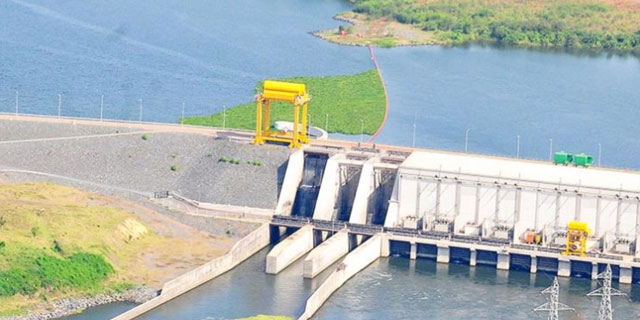
JINJA, UGANDA | THE INDEPENDENT | The government’s proposal to grant Bujagali Energy Ltd another seven-year tax exemption has raised condemnation from the public and civil society as an uncalled-for move.
They say the act would be a violation of the recently instituted tax incentives framework that is aimed at ensuring that such facilities benefit the country in terms of building capacity and creating jobs for Ugandans, among others.
Last month, the Ministry of Finance, Planning and Economic Development tabled before parliament seven tax bills aimed at introducing new measures for revenue mobilisation in the financial year 2025/2025, among them, the Income Tax (Amendment) Bill, 2025.
Among other proposals, the Bill provides for another tax exemption to the Bujagali Hydropower Project until 2032, following a previous extension last year that is expiring on June 30 this year.
The Civil Society in Uganda, under their umbrella, the Tax Justice Alliance Uganda, say there is no justification whatsoever for new exemptions to a company that has enjoyed such a benefit for the last 15 years.
BEL was formed in 2004 specifically to build, own and operate the 250MW Bujagali Hydropower Station for the next 30 years, and thereafter, hand it over to the government at 1.0 US Dollars.
The station was commissioned in 2012. The planned exemption is aimed at ensuring that the company recovers its investment costs and begins to make profits that would be taxable, while lowering the costs of operation to enable lower electricity tariffs for consumers.
In their estimates, the Ministry says that if the exemption were not granted, the electricity generated at Bujagali would cost 9.6 US cents or 352 shillings per kilowatt hour, representing an increase of 15.5 percent from the current costs.
However, in the same way, the Ministry says in the Certificate of Financial Implications that if the Bill is passed and Bujagali Energy is granted the exemption, the government will lose 31.55 Million Dollars or 115.47 Billion Shillings annually. According to the Parliament Ad hoc Committee on Bujagali report in 2023, BEL had by 2022 already recouped investment expenses worth 176.9 Million Dollars (651.4 Billion Shillings).
It adds that the company had been overpaid by the government up to 671.5 Million Dollars (2.47 Trillion Shillings) instead of 329.3 million (1.21 trillion).
As of June 2022, the report shows, BEL had paid out 475.7 (1.75 Trillion Shillings) in dividends, a fact that the civil society says is proof that the company was making profits.
“The waiver guarantees financial benefits to the company over profits but does little or nothing to lower the tariff and benefit the citizens who are the taxpayers,” says Aloysius Kitengo, Program Coordinator, Financing for Development, SEATINI Uganda.
He wonders why a company that is recouping or has already recouped its investment and is making profits should continue receiving tax incentives.
They call on the government to comply with the recommendations of the Ad Hoc Committee of Parliament in respect to renegotiating the terms in the Public Private Partnership before a decision is made on extending the tax waiver.
They also want the government to recover all the excess payments made to Bujagali Energy Ltd, and apply accurate figures in the calculation of the payments going forward. Jon Kafuko, Health for Tax Justice Network Programmes Manager, called on parliament to reject the proposal for the sake of the taxpayer.
The government of Uganda owns 10 percent in the Company, but analysts are worried that it is investing more than the bigger shareholders, who include Scatec (formerly SN Power AS) with 55.45 percent and the Aga Khan Fund for Economic Development with 31 percent, the other being Jubilee Investment Company with 18.24 percent.
Sophie Nampewo, Finance for Development Coordinator, Oxfam in Uganda, welcomes the new guidelines for tax incentives.
They provide criteria that should be followed to determine whether an investor qualifies for the incentives.
The framework also sets conditions that the beneficiary must fulfil along the way. If they fall short, then the waiver is revoked and the company is compelled to pay the taxes due for a period over which the guidelines were violated.
However, she calls for transparency, saying that reports are compiled on companies but are not made public, which denies the public the opportunity to track the performance of taxpayers’ money.
Instead, the advocates say the government and parliament should find alternative funding mechanisms, like a tariff subsidy, to lower the cost of electricity.
*****
URN
 The Independent Uganda: You get the Truth we Pay the Price
The Independent Uganda: You get the Truth we Pay the Price





